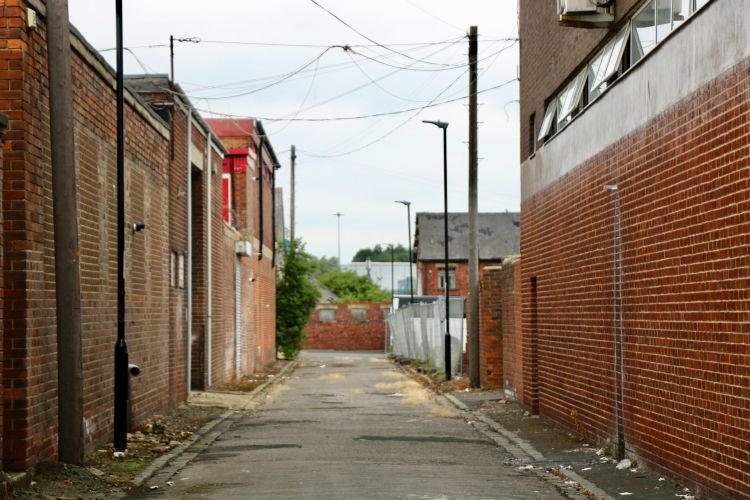Net zero policy risks making the poor poorer – research calls for an inclusive transition

A new report warns the government’s net zero transition policies could push struggling communities further into deprivation. How can policies create a fair and inclusive transition to net zero?
The report is a collaboration between Professor Lucie Middlemiss (School of Earth Environment) and colleagues from the Institute for Community Studies at The Young Foundation, the University of York and Trinity College Dublin.
The research finds the poorest 40% of households are at risk of falling into ‘transition poverty.’
For the report, which was funded by the Nuffield Foundation, researchers ran workshops with a diverse group of people from low-income neighbourhoods in Leeds and Newcastle.
They found that the participants wanted to contribute to the transition to net zero, but they faced significant obstacles.
Some of these included:
- Not having the money to invest in changes to their home
- Not owning their home, so not having the agency to change it
- Having to travel long distances for amenities, leisure, education or work.
In the context of the cost-of-living crisis and the government’s ‘levelling up’ project, people with vulnerabilities such as debt or constrained spending power, people in social or rented housing and communities with fragile local economies face the greatest barriers to participation in net zero transition.
Part of the transition to net zero includes changing how we live, spend, travel, work, eat and have fun.
For people who already have less opportunities due to their circumstances, cutting down spending and travelling further can lead to more exclusion.
The risks to vulnerable people are avoidable if policy is designed with a better understanding of how ready different places and communities are for transition and what their strengths and vulnerabilities are.
Why public involvement?
According to the research, reaching our decarbonisation goals requires the participation of everyone in all parts of the UK.
However, assets, infrastructure and policies enable some communities more than others to participate in the net zero transition.
The report argues that if changes made towards decarbonisation are poorly managed, the UK’s net zero transition risks pushing vulnerable communities further into deprivation.
It says that existing environmental policies have not taken inequalities into account and that they will create “winners” and “losers” through who they benefit and who they adversely affect.
Public involvement in a fair and inclusive net zero strategy can mitigate this.
There is public support for the transition to net zero regardless of these vulnerabilities; however, people can’t see or trust that their central and local governments will lead the charge.
The report therefore calls for a public conversation about what needs to change and how the changes can be relevant and sustainable for all people and communities.
This would create a ‘person-centred, place-based' approach that supports all households and places to prosper.
Low-income households are more likely to be left behind
Lucie Middlemiss, co-author of the report and co-lead of academic outputs said:
“While our participants were keen to play their part in the transition to net zero, they faced some important challenges in doing so. This is partly about being able to afford to invest in change at home and for the family. Low-income households are more likely to be left behind in the transition given that they don’t have money to spare.
“But other things prevent people from being able to act. Where you live, and the resources you have access to in your neighbourhood are really important. In a future in which we expect to travel a lot less, we can see that people living in neighbourhoods that are far from leisure, education and work opportunities will struggle to meet their needs.
“People are also constrained by the home they live in, particularly in terms of how suitable it is for low-carbon retrofit, as well as how likely they are either to find funds to make changes at home or persuade the building owner to make improvements.
“Overall, it is clear that plans for Net Zero are likely to increase inequalities, unless we make a concerted effort to address the barriers facing those on low incomes.”
Policy recommendations
The researchers shared their findings with local government and communities in four local authorities in England, exploring potential incentives and policies to support an inclusive transition.
Building on these co-created policies, the report calls for a system that aligns national and local government with public service providers, the private sector and communities.
The recommendations include:
- Remove the most significant barriers for the poorest households
- Devolve governance for net zero policy creating a specific vision and plan for each geographic area
- Engage the public meaningfully in decision-making
- Build collective action and policy for net zero transition
- Local leaders, civic actors and investors should adopt a data-driven, ‘place readiness’ approach
- Recognise the need to engage other trusted actors, such as employers and investors
- Update the existing Climate Change Committee (CCC) Risk Assessment to provide a broad and true picture of community and household vulnerabilities.
Emily Morrison, Director of Sustainability and Just Transition at The Young Foundation said: “Our research shows there is a will, an appetite, and even an urgency amongst the public, including the most vulnerable and poorest households, to participate in the transition to net zero. But this has to be enabled through policy and practice that works with real people’s lives, and the places they live in.
“Current policy will result in winners and losers through net zero transition, and we cannot let it become another part of UK policy that needs to be ‘levelled up’. If we build participation, rather than waiting to nudge people and hoping they’ll comply, and if we remove barriers, build on community assets, and maximise local readiness, we can reconcile decarbonisation with fair and just outcomes that mean decarbonisation does not leave anyone, or any place, behind.”
The full report is available to download from www.youngfoundation.org/our-work/publications/our-journey-to-net-zero.




